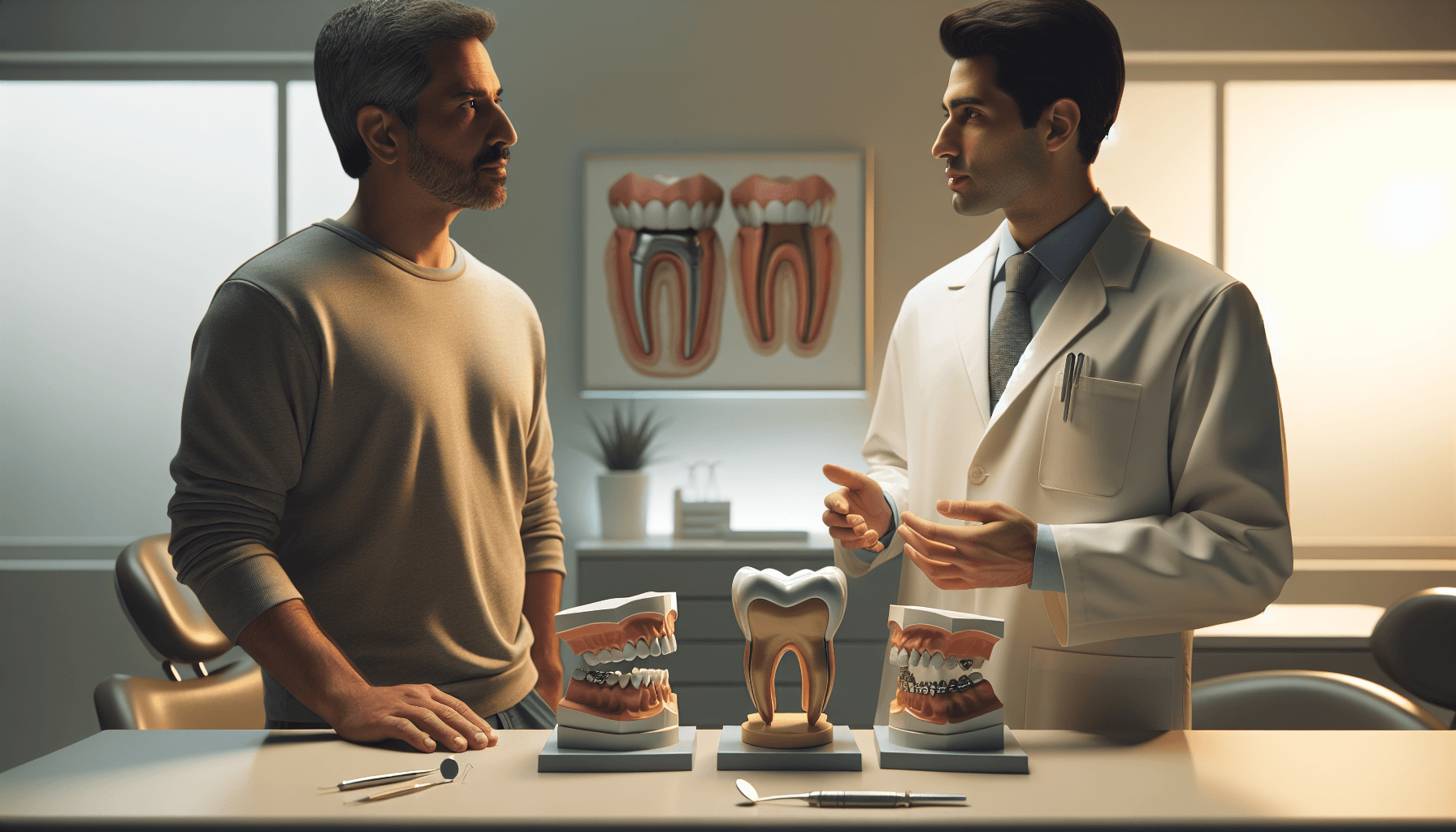Permanent Dental Implants vs Dentures and Bridges Explained
When it comes to replacing missing teeth, patients are often faced with three main options: dentures, dental bridges, and permanent dental implants. Each solution offers unique advantages and challenges. The right choice depends on several factors such as oral health, lifestyle, budget, and long-term goals for comfort and functionality. To help you make an informed decision, let’s explore the differences, benefits, and limitations of each option.
Understanding Tooth Replacement Options
Dentures
Dentures are removable prosthetic devices that replace missing teeth and are typically supported by the surrounding tissues of the mouth. They can either be partial dentures (for patients missing several teeth) or full dentures (for patients missing an entire arch of teeth).
- Affordability: Dentures are generally the most cost-effective option.
- Non-invasive: No surgical procedure is required, which makes them suitable for patients who cannot undergo oral surgery.
- Adaptability: Modern dentures are more natural-looking, lightweight, and comfortable than older designs.
However, since dentures are removable, they may require adhesives to stay in place and can sometimes slip while eating or speaking. Over time, bone loss in the jaw may also occur, leading to adjustments or replacements.
Dental Bridges
Bridges are fixed appliances that anchor artificial teeth to natural teeth on either side of a gap. They offer more stability compared to removable dentures and are often chosen when only one or two adjacent teeth are missing.
- Stable and natural feel: Bridges stay in place without adhesives.
- Faster treatment time: Most dental bridge procedures are completed within a few weeks.
- Improved function: Bridges restore chewing ability and prevent nearby teeth from shifting.
The drawback is that healthy surrounding teeth need to be filed down to support the bridge, which can compromise their long-term health. Additionally, bridges do not prevent jawbone loss that occurs when teeth are missing.
Permanent Dental Implants
Dental implants are small titanium posts surgically inserted into the jawbone to replace the root of a missing tooth. Once healed, a custom-made crown, bridge, or denture is attached to the implant, creating a permanent solution that looks and feels like a natural tooth.
- Long-lasting solution: Implants can last decades with proper care, often longer than bridges or dentures.
- Prevents bone loss: Implants stimulate the jawbone, maintaining its density and preventing the “sunken” facial appearance caused by tooth loss.
- Natural aesthetics: The appearance is virtually indistinguishable from real teeth.
- Confidence boost: No slipping, clicking, or adhesives—implants function just like natural teeth.
While implants are more expensive upfront and require a surgical procedure, they are considered the gold standard for tooth replacement due to their stability and durability.
Dental implants offer a permanent, natural-feeling solution for missing teeth, often improving both oral health and self-confidence in ways that dentures and bridges cannot.
— American Academy of Implant Dentistry
Comparing Comfort and Lifestyle Impact
Speech and Eating
- Dentures: May cause slight speech difficulties and can shift during meals.
- Bridges: Offer stable function, though they do not replicate the root structure of a natural tooth.
- Implants: Provide the closest experience to natural teeth, with no dietary restrictions and no concern for slippage.
Oral Health Considerations
Another major difference lies in how each option interacts with long-term oral health:
- Dentures: Do not support jawbone health and can accelerate bone loss over time.
- Bridges: Compromise neighboring teeth by requiring them to support crowns, potentially leading to future oral issues.
- Implants: Preserve bone and protect the alignment and health of surrounding teeth.
Cost and Longevity
Cost is often a major deciding factor for patients.
- Dentures: Lowest upfront cost but may need frequent adjustments or replacements every 5-8 years.
- Bridges: Moderate cost and typically last between 7-15 years.
- Implants: Highest initial investment but can last 20+ years, often proving more cost-effective in the long run.
Which Option is Right For You?
Choosing between dentures, bridges, and implants depends on your unique needs. If affordability and non-surgical treatment are most important, dentures may be the right choice. If you’re missing only one or two teeth, a bridge may offer a suitable middle ground. However, if long-term comfort, natural aesthetics, and improved oral health are priorities, dental implants provide unparalleled benefits.
It’s always best to consult with a dental professional who can assess your oral health, medical background, and personal preferences to recommend the most effective solution.
The Bigger Picture: Confidence, Health, and Human Values
Our teeth are more than just tools for chewing—they play a central role in the way we speak, smile, and engage with the world. Restoring a full and healthy smile isn’t only about oral function, but also about improving confidence, dignity, and quality of life. When your teeth look and feel natural, you can express yourself more freely, nurture relationships, and enjoy everyday moments without hesitation.
Much like building positive habits that strengthen the foundation of our daily lives, choosing the right dental solution is about investing in long-term well-being. In my book The Habit Method, I explain how small, intentional choices can create lasting transformation. A healthy, confident smile is one of those life-changing choices that radiates outward into every interaction and opportunity.
If you’re ready to reclaim your smile and embrace the strength of healthy habits, take the next step today by learning more here: Discover your path to confidence and well-being.
Post Disclaimer
DentalUp is for educational purposes only and cannot accept personal dental information such as x-rays, photos, or treatment details. See full disclaimer here.





